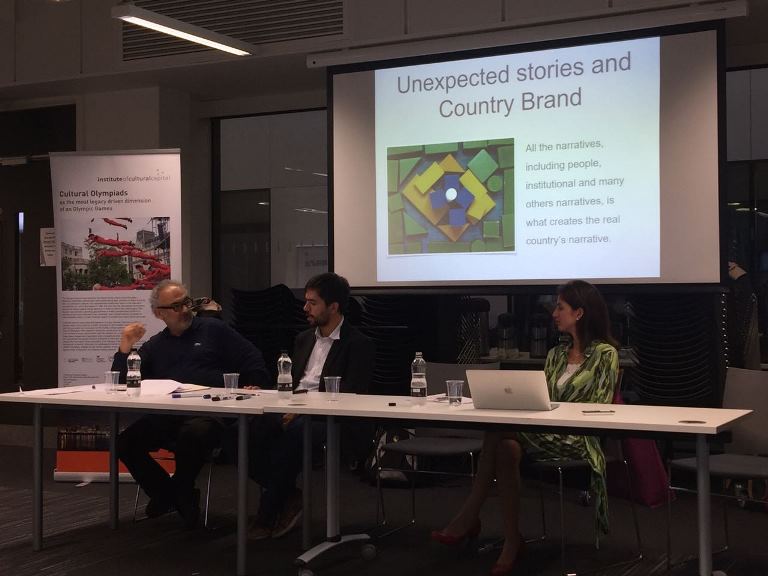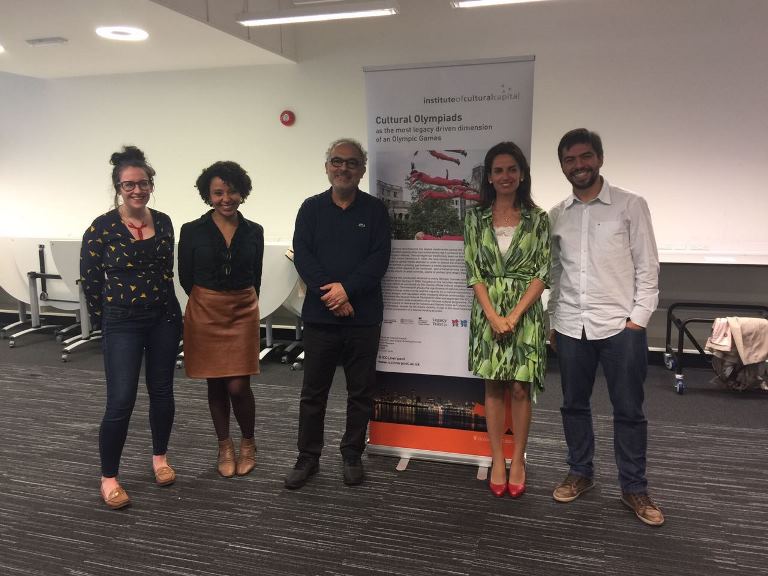Research discusses narratives of the Olympic Games Rio de Janeiro

In 2016, the legacy of the Olympic Games in Brazil was subject of endless discussions. In the academic realm, the mega-event and the debate about it were fruitful inputs for cultural narrative and legacy studies. After all, how successful were the Games according to the media? What was the adopted narrative about Brazil during the mega-event? The Workshop “Branding Brazil: the effects of Rio 2016 on image and culture Narratives” that took place on 16th May 2017 at the University of Liverpool (England) pointed out some possible paths.

Branding Brazil workshop is the first part of the results dissemination of a year-long Newton Fund grant for a knowledge exchange leaded Dr Beatriz Garcia, Senior Lecture at the University of Liverpool and Institute of Cultural Capital (ICC) Director, and Professor Paulo Nassar, Full Professor of School of Communication and Arts of the University of Sao Paulo (ECA-USP) with the collaboration of Tato Carbonaro, lecture at Anhembi Morumbi and a member of Aberje, Cinthia Leone, Ph.D. candidate at the University of Sao Paulo, and Ailsa Peate, ICC Research Assistant.

Dr Beatriz, leading researcher on mega-event cultural impacts and Olympic cultural policy-making, delivered a keynote speech on the research methodology that underpins this projects, specially placing the analysis of the media on the evolution of mega-events, such as the Olympic. Dr Gracia has been dedicating her research interest and academic production to the analysis of public imagine and narrative constructions of the urban space thought the lens of mega-events press analysis. Dr Paulo Nassar keynote speech addressed the role played by national meta and micro narrative in the discussion of Brazil as a brand. Tato Carbonaro focus his presentation in the analysis of the social, political, and economic context that framed the Olympic Games 2016. Finally, Cinthia Leone, from Brazilian point of view, and Ailsa Peate, from the British point of view, shared with the audience the preliminary results from the press analysis.
The second part of results dissemination of this knowledge exchange will take place at Museu do Amanhã, Rio de Janeiro, in August 2017.
Destaques
- Retrospectiva Aberje 2024: mundo em crise e transição
- Tema do Ano “Comunicação para a Transição” é renovado para 2025
- Valor Setorial Comunicação Corporativa 2024 analisa importância das conexões e da transparência na Comunicação
- Aberje participa de jantar comemorativo dos 25 anos da Fundação Gol de Letra
- Web Summit Lisboa 2024: Inovação e ética em um futuro moldado pela IA
ARTIGOS E COLUNAS
Carlos Parente Na comunicação, caem por terra influencers sem utilidade e erguem-se, aos poucos, os curadores de conteúdoGiovanni Nobile Dias Como você tem nutrido seu cérebro?Marcos Santos Por tempos melhoresThiago Braga O impacto de modernizar a Comunicação Interna em uma grande indústriaGiovanni Nobile Dias O alarmante retrato da leitura no país



























